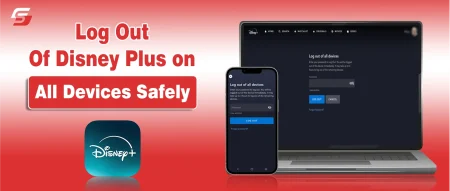Figuring out your career in 2025 is no small task. I know how overwhelming it feels when everyone around you seems uncertain, and the job market keeps shifting faster than we can keep up. Artificial intelligence is automating tasks you once thought were safe, climate change is creating brand-new industries, and the skills employers want today may be outdated tomorrow.
So, you might be asking yourself, “Should I chase stability, passion, or future-proof opportunities?” I have asked the same questions, and in this guide, I will help you learn how to choose a career in the 2025 job market so you can make a smart, confident career choice.
Understand the 2025 Job Market
Before you can make a career decision, you need to understand what the job market looks like. In 2025, careers are shaped by technology, global collaboration, and new industries.
1. The Rise of AI and Automation
AI is not just replacing repetitive tasks but also creating new jobs in areas like data ethics, AI auditing, and machine learning. Roles that require creativity, emotional intelligence, and critical thinking are less likely to be automated, making them safer bets.
2. Growth of Green Jobs
Climate change policies are creating a surge in careers related to renewable energy, sustainable business practices, and environmental engineering. If you’re interested in making an impact on the planet, this sector is only going to grow.
3. Remote and Hybrid Work as the Norm
The pandemic reshaped work permanently. In 2025, flexibility is expected, not optional. Careers that adapt well to remote or hybrid models are in higher demand, and professionals with strong digital communication skills stand out
How to Choose a Career in the 2025 Job Market?
Below, I have provided insights into how to choose a career in the 2025 job market, as the competition is on the rise.
1. Assess Your Strengths and Interests
A career should not only be about what’s trending but also about what suits your personality and skills.
Self-Reflection Questions
- What subjects or tasks do I enjoy the most?
- Am I more creative, analytical, or practical?
- Do I prefer working with people, technology, or ideas?
When you ask yourself these questions, you can narrow down fields that align with who you are.
Use Career Assessment Tools
In 2025, online career-matching tools use AI to give more accurate results based on your skills, personality, and industry trends. Platforms like LinkedIn Career Explorer or government career guidance portals can help you explore new opportunities.
2. Focus on Skills Over Job Titles
Job titles are changing quickly. Ten years ago, roles like “cloud architect” or “influencer marketer” barely existed. Instead of chasing job titles, focus on building adaptable skills.
Essential Skills for 2025
- Digital literacy: Comfort with AI tools, data analysis, and digital collaboration.
- Critical thinking: Ability to evaluate information and solve complex problems.
- Creativity: Designing innovative solutions in fast-changing industries.
- Communication: Both written and verbal, especially in digital workplaces.
- Adaptability: The ability to pivot as industries evolve.
Important Note
Pro Tip: Think of your career as a skill portfolio rather than a single role. The more transferable skills you have, the easier it is to shift industries when needed.
3. Explore Future-Proof Industries
Some industries are growing faster than others. If you’re entering the job market in 2025, you’ll want to consider areas that offer stability and growth.
- Technology and AI: Careers in data science, cybersecurity, AI development, and software engineering remain top choices. These roles are high-paying and in constant demand.
- Healthcare and Biotechnology: With an aging population and new medical technologies, careers in healthcare, nursing, telemedicine, and biotech are expanding rapidly.
- Green Energy and Sustainability: From solar panel technicians to environmental policy advisors, the green sector is booming. This field also offers opportunities for people with both technical and business skills.
- Creative and Digital Media: Content creation, UX design, and digital marketing are still thriving. With AI tools, these careers now demand creativity and storytelling more than technical production.
4. Research Career Paths Thoroughly
A smart career choice requires research beyond surface-level information.
- Job Market Data: Look up salary ranges, job outlook, and required skills for each career you’re considering. Websites like the U.S. Bureau of Labor Statistics or LinkedIn Workforce Reports can provide reliable data.
- Networking and Mentorship: Talk to professionals already in your target field. In 2025, virtual networking platforms and mentorship programs are stronger than ever, making it easier to connect with experts worldwide.
- Test Before Committing: Many companies now offer internships, freelance projects, and micro-apprenticeships that let you test a career path before fully committing. This reduces the risk of making a wrong choice.
5. Balance Passion with Practicality
Passion is important, but it should be balanced with realistic career prospects.
- High passion, low demand: If you love a niche area, consider blending it with a high-demand skill. For example, if you love writing, combine it with digital marketing.
- High demand, low passion: If a field pays well but doesn’t excite you, explore roles that use your transferable skills in more enjoyable ways.
- Sweet spot: Aim for careers that give you both fulfillment and financial stability.
6. Build a Continuous Learning Mindset
In 2025, career growth isn’t about one-time education but about lifelong learning.
- Upskilling and Reskilling: With technology changing so fast, professionals must constantly update their skills. Online platforms like Coursera, Udemy, and edX make it easy to stay relevant.
- Micro-Credentials and Certifications: Instead of traditional degrees, many employers value short, focused certifications in areas like cloud computing, AI ethics, or project management. These show initiative and keep you competitive.
- Adapt to Change: Being open to learning new tools and switching industries when necessary makes you resilient in uncertain job markets.
7. Create a Career Plan with Flexibility
A career plan should not be rigid but should give you direction.
- Short-Term Goals (1–2 years): Identify skills to build, courses to take, and entry-level opportunities to pursue.
- Mid-Term Goals (3–5 years): Think about promotions, specializations, or leadership roles you might aim for.
- Long-Term Vision (5–10 years): Instead of locking into one role, define the impact you want to make and the lifestyle you want to achieve. This way, you can adjust as industries evolve.
Final Thoughts
Choosing a career in the 2025 job market may feel overwhelming, but it’s also exciting. With so many industries expanding and new opportunities emerging, the key is to align your interests and strengths with future-proof skills. Focus less on traditional job titles and more on building a versatile skillset that keeps you adaptable. Remember, careers today are no longer linear journeys but dynamic paths that evolve with you.
If you invest time in self-reflection, research, and continuous learning, you’ll not only find a career that fits but also one that grows with you in the years ahead.










